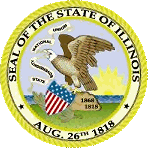September 5, 2019 •
Kentucky Legislative Ethics Commission Recommends Changes to Sexual Harassment Rules

The Kentucky State Capitol building
The Legislative Ethics Commission unanimously recommended that the 2020 General Assembly pass legislation prohibiting legislators and lobbyists from engaging in sexual and workplace harassment against legislative employees, other legislators, and lobbyists. In past cases involving allegations of sexual harassment, the […]
The Legislative Ethics Commission unanimously recommended that the 2020 General Assembly pass legislation prohibiting legislators and lobbyists from engaging in sexual and workplace harassment against legislative employees, other legislators, and lobbyists.
In past cases involving allegations of sexual harassment, the commission has followed more general ethics laws relating to the misuse of office.
The recommended change would add specific workplace protections into the legislative ethics law and categorize sexual harassment as ethical misconduct, punishable by fines or other sanctions.
The commission also recommended that the ethics law be amended to grant the commission the authority to adjudicate a complaint filed against a legislator, even if the legislator leaves office after the complaint is filed, as long as the complaint is based on action that occurred not more than a year prior to the day the legislator left office.
During the 2019 session, several bills relating to sexual harassment were filed but none were approved by the legislature.
In a statement released Tuesday, the Legislative Ethics Commission announced J. William Roberts has been named acting legislative inspector general. Roberts is a former U.S. attorney and served as legal counsel to former Gov. Jim Edgar. He will take over […]
 In a statement released Tuesday, the Legislative Ethics Commission announced J. William Roberts has been named acting legislative inspector general.
In a statement released Tuesday, the Legislative Ethics Commission announced J. William Roberts has been named acting legislative inspector general.
Roberts is a former U.S. attorney and served as legal counsel to former Gov. Jim Edgar. He will take over for Tom Homer, who served 10 years following the creation of the position as part of the 2003 Ethics Act.
Roberts will be responsible for investigating complaints of rule violations, abuse of authority, and other forms of legislative misconduct.
October 17, 2013 •
Two Kentucky Special Elections for December 10
House District 7 and Senate District 13
 Governor Steve Beshear has called two special elections for December 10, 2013. The elections will be in the 7th House District and the 13th Senate District.
Governor Steve Beshear has called two special elections for December 10, 2013. The elections will be in the 7th House District and the 13th Senate District.
The 7th District vacancy occurred after Rep. John Arnold resigned his seat in September following sexual harassment allegations from three Legislative Research Commission employees. The Legislative Ethics Commission recently determined there was probable cause Rep. Arnold violated the code of ethics and will hold a full hearing on the sexual harassment complaints on December 12.
The 13th Senate District vacancy occurred following Sen. Kathy Stein’s circuit judge appointment.
Recommendations submitted to legislative research commission
 The Kentucky Legislative Ethics Commission has submitted a recommendation to the legislative research commission for several changes to the code of legislative ethics.
The Kentucky Legislative Ethics Commission has submitted a recommendation to the legislative research commission for several changes to the code of legislative ethics.
The recommended changes include:
- requiring employers of lobbyists to report the cost of advertising supporting or opposing legislation that appears during a session of the general assembly, if the cost is paid by an employer of lobbyists or a person affiliated with an employer;
- prohibiting employers of lobbyists and PACs from making campaign contributions to legislative candidates or legislators during a regular session of the general assembly, and prohibiting lobbyists from directly soliciting contributions for an election campaign of a legislator or legislative candidate;
- repeal the provision allowing each lobbyist and employer to spend up to $100 annually on food and beverages for each legislator and his or her immediate family, and prohibit lobbyists and employers from paying for out-of-state travel, food, or lodging expenses for legislators or candidates; and
- limiting the interaction between lobbyists and candidates who have filed to run for election to the general assembly, who are currently not subject to the $100 limit on food and beverage or prohibition on receiving anything of value from a lobbyist or employer.
November 4, 2010 •
Utah Voters Approve New Legislative Ethics Commission
Amendment takes effect in 2011
 On November 2nd, voters approved Constitutional Amendment D by a vote of 67 percent for to 33 percent against. Amendment D establishes a five-member legislative ethics commission with the authority to conduct an independent review of complaints alleging unethical legislative behavior.
On November 2nd, voters approved Constitutional Amendment D by a vote of 67 percent for to 33 percent against. Amendment D establishes a five-member legislative ethics commission with the authority to conduct an independent review of complaints alleging unethical legislative behavior.
The ultimate decision whether to punish or expel a member of either the House or Senate would remain with the member’s chamber. The amendment also prohibits sitting members of the legislature or registered lobbyists from serving on the new commission.
Amendment D takes effect on January 1, 2011.
State and Federal Communications, Inc. provides research and consulting services for government relations professionals on lobbying laws, procurement lobbying laws, political contribution laws in the United States and Canada. Learn more by visiting stateandfed.com.

